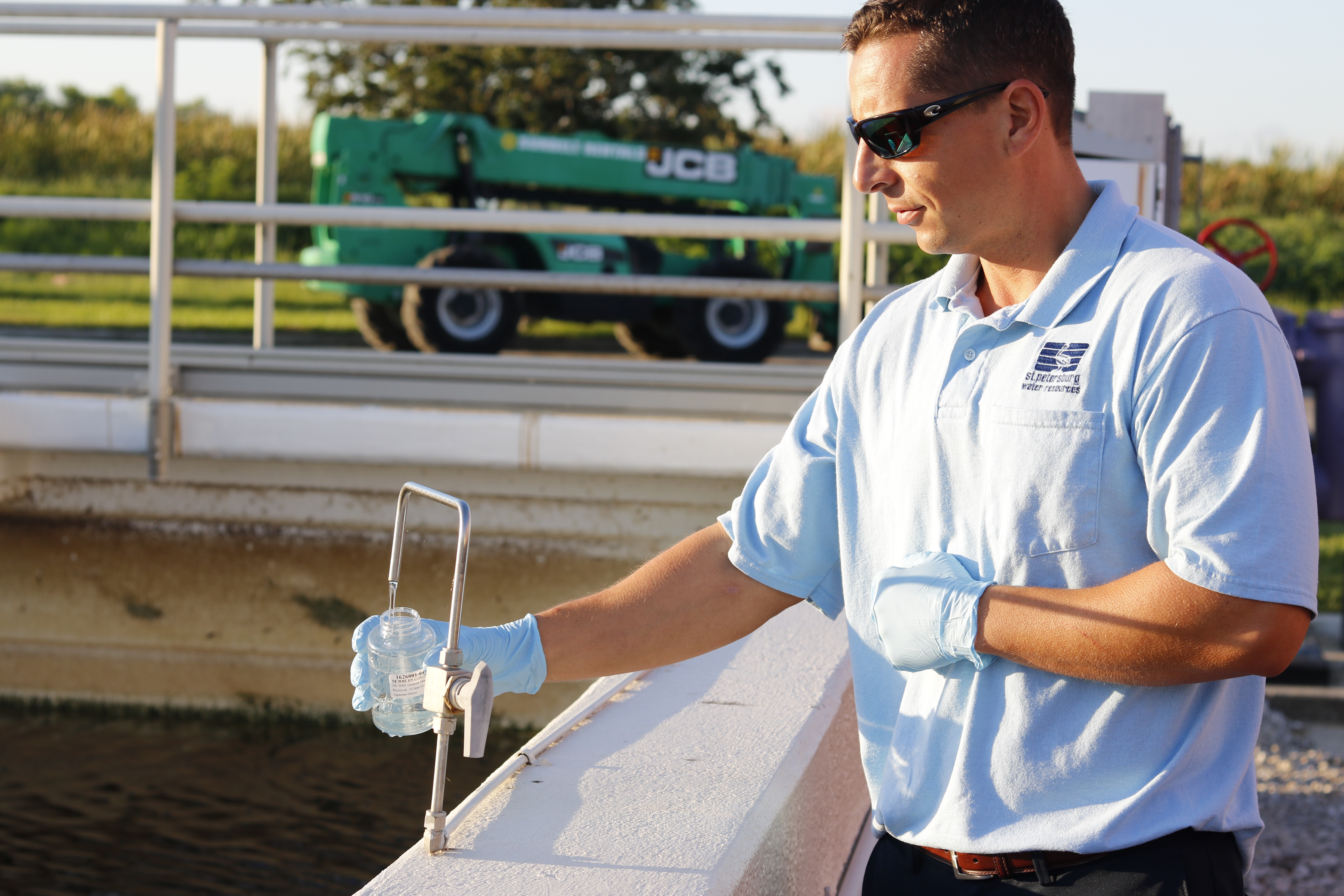By Noel Mullins
St. Petersburg’s sewage spills are a hot topic for environmental leaders on campus.
“I’m conflicted, honestly,” said Byron Baugh, sustainable initiatives coordinator for student government.
“The fact that information has been withheld from the public is not great, and I think a lot of us are disappointed in Kriseman’s administration for that reason,” Baugh said. “He needs to be more transparent with the public as often as possible. But, for the most part we (student government) support Kriseman’s initiatives in environmentalism.”
Last Friday, Pinellas-Pasco State Attorney Bernie McCabe made the public announcement that he would not be pressing any charges against the City of St. Petersburg or any city employees for the sewer spills that began in 2015.
The decision came in the midst of a report released last month by the Florida Fish and Wildlife Conservation Commission’s investigation, which focused on the city’s sewage discharges in 2015-2016.
The Tampa Bay Times reported that after a yearlong investigation, results showed evidence of 89 felonies and 103 misdemeanors committed when the city released up to 200 million gallons of sewage water, while pumping an additional 700 to 800 million gallons underground during a 13 month span.
McCabe told the Tampa Bay Times that he wouldn’t be pressing charges because the FWC report that was released last month didn’t identify anyone in particular that was responsible, so no one could be prosecuted.
“There’s a where. There’s a when. There’s no who,” McCabe told the Times, “It would totally be a waste of time and resources to hold the city criminally accountable.”
But wait, it keeps getting better:
More than 15 million gallons of what officials are calling “fully treated wastewater” was injected into underground tanks or injection wells, to try and handle some of the sewage increase after Hurricane Irma. This information was only released to the public earlier two weeks ago.
“Our system has really needed an upgrade for a long time now, since at least the early to mid-2000s. But, I believe it’s an all-our-fault situation as to why McCabe didn’t file criminal charges,” said James Ivey, program coordinator for environmental science and policy graduate and undergraduate programs.
According to Ivey, replacing old sewer pipes is both costly and time-consuming and might be reason the city postponed the process. He says the problem has been compounded by the growing population density of Pinellas County, and that we each have to acknowledge our accountability in the issue.
“It’s just as much my fault as everyone else’s, because when I got here when I was younger, I didn’t raise any attention or say hey, we need to address this,” Ivey said.
Ivey seems to think there doesn’t appear to be an easy solution.
“They’re going to have to dig up our streets, they’re going to have to dig up our sidewalks, and they’re going to have to dig up our yards,” Ivey said. “Most people don’t like the idea of that if they haven’t experienced anything like this before. That’s why I say it’s all our fault. We are short-term thinkers.”
For Brian Pullen, sustainability planner on campus, regardless of what initially caused the issue, the time to act is now.
“I think it’s an unfortunate thing to happen (the injection after Irma) but at the same time, they had no other option,” Pullen said.
The lack of active wastewater treatment facilities have put a burden on the system, Pullen said.
However, Pullen says that they should have let the public know earlier on that we had to take these sort of measures. Despite the lack of options, there should have been more transparency.
But not all is lost.
“I will give the mayor’s office credit in saying the city has been trying to be proactive,” Pullen said.
He points to the addition of a large scale biodigester on the southside of town as being a potential solution.
“The biodigester will take raw sewage and basically convert it into gas, which will power a lot of the fleet vehicles for the city’s municipality and reduce operational costs.”
The biodigester facility, called the Waste-to-Energy Plant, has been planned since 2014.
While it won’t solve St. Petersburg’s sewage issues, Pullen says it is a step in the right direction.
Pictured Above: Zach Gagnon works for the environmental compliance division of the water department for St. Petersburg. Gagnon collected samples of bodies of water around the city to test for bacteria and high levels of nutrients back in 2016. Devin Rodriguez | The Crow’s Nest



